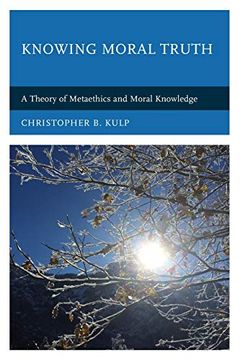Synopsis "Knowing Moral Truth: A Theory of Metaethics and Moral Knowledge (in English)"
This is a book on metaethics and moral epistemology. It asks two fundamental questions: (i) Is there any such thing as (non-relative) moral truth?; and (ii) If there is such truth, how do we come into epistemic contact with it? Roughly the first half of the book is aimed at answering the first question. Its animating idea is that we should take our ordinary, tutored moral judgments seriously-judgments typified by our conviction that it is clearly true that some acts, policies, social norms et al. are morally right or wrong, permissible or impermissible, praiseworthy or condemnable, etc., no matter when, where, or by whom they are performed. In order to provide a firm conceptual basis for such judgments, the book develops a theory of moral truth, based on a theory of moral facts. The account of moral truth and moral facts is further grounded on a theory of moral properties. In short, the book develops a theory of moral realism, roughly, the view that there are indeed non-relative, first-order moral truths. The second half of the book is aimed at answering the second question above. Building squarely on the metaethical theories developed earlier, the book argues for a non-empiricist theory of justified moral belief and knowledge. Pivotal to this project is a careful analysis of various forms of moral skepticism, by which I mean any conception of morality substantially at odds with the general contours of our ordinary moral thinking. All such skepticisms are rejected, and in their place a broadly intuitionist, epistemically fallibilist theory of moral knowledge is advanced. The conclusion reached is that we have very strong reason to believe that our ordinary moral thinking, although certainly liable to error, is fundamentally sound. Moral knowledge is ubiquitous.

